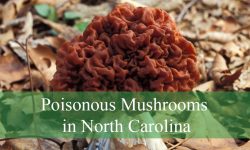If you’re looking to protect your garden from snakes, consider incorporating these 17 natural snake repellent plants. Each plant has unique qualities that deter snakes, whether it’s their scent, sharp leaves, or growth habits. Let’s dive into these snake-repelling wonders!
What Are Snake Repellent Plants?
Snake repellent plants are natural plants that are known for their ability to deter snakes from entering specific areas of your yard or garden. These plants work by emitting strong odors or releasing chemicals that are unpleasant or overwhelming to snakes, making them avoid the area. Unlike chemical repellents, snake repellent plants offer a more eco-friendly and safe solution for keeping snakes at bay, without the use of toxic substances that could harm pets, wildlife, or the environment.
The way these plants work is through their scent or texture. Many of these plants have strong, pungent odors that snakes find irritating, as they have a highly developed sense of smell. For example, plants like garlic, lemongrass, and wormwood release scents that snakes find offensive, which drives them away from the area. Other plants, such as the mother-in-law’s tongue (snake plant), have sharp, tough leaves that make the environment uncomfortable for snakes to slither through. Additionally, some plants, like rue and pennyroyal, contain compounds that are toxic to snakes or disrupt their sensory systems, further discouraging them from entering the area.
Different Types of Snake Repellent Plants
West Indian Lemongrass
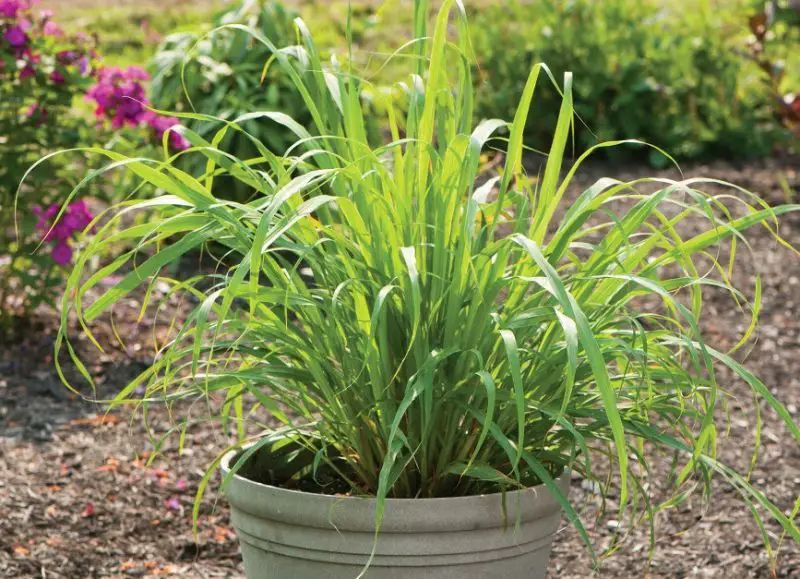
West Indian Lemongrass (Cymbopogon citratus) is a citrus plant known for its strong scent, which snakes find unpleasant and avoid. This plant is easy to grow and requires minimal maintenance, needing only regular watering during the summer. It thrives in well-drained, moist soil and requires full sunlight to grow vigorously.
The strong fragrance emitted by the lemongrass is the key factor in keeping snakes away from your garden. With its natural snake-repellent properties and low-care needs, West Indian Lemongrass is an excellent choice to protect your yard from unwanted reptiles.
Marigold
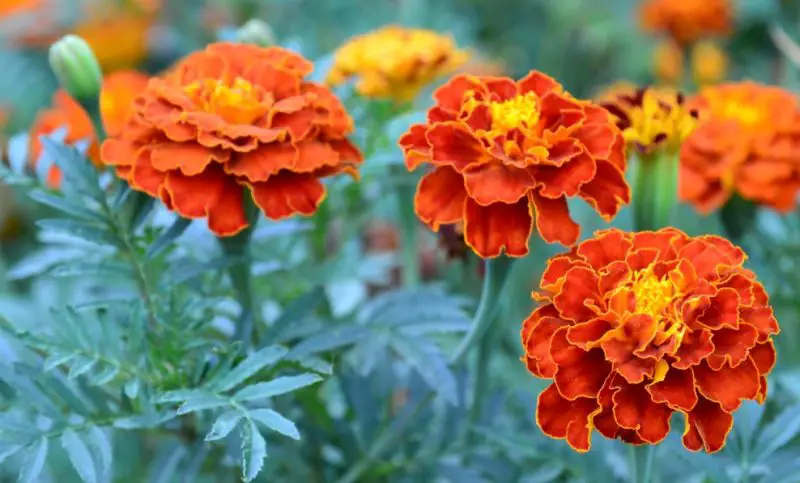
Marigold (Tagetes) is a vibrant and attractive flower known for its strong odor, which helps repel snakes and other pests. This plant thrives in full sunlight and requires moist, well-drained soil. It is easy to grow and maintains its bright, colorful blooms throughout the growing season, making it a great addition to your garden.
The scent of Marigold is unpleasant to snakes, making it an effective natural repellent. By planting Marigolds along the edges of your garden, you can create a colorful and protective barrier to keep snakes away from your yard.
Snake Plant
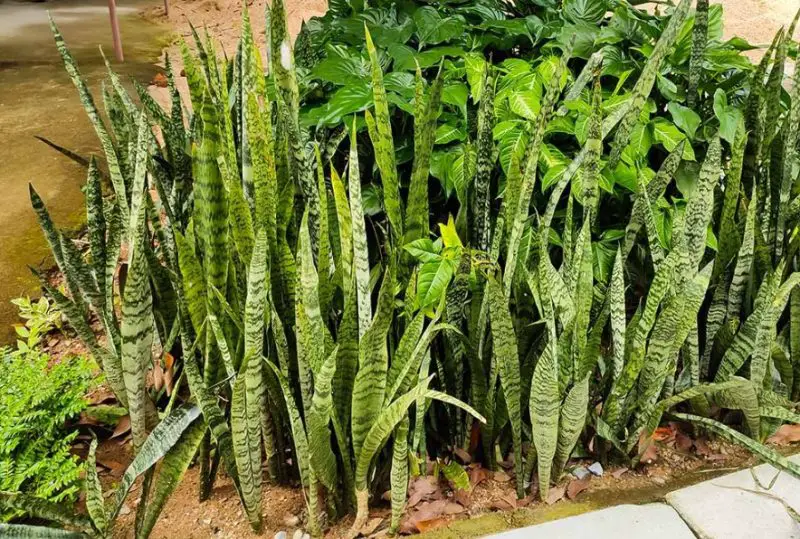
Snake Plants (Dracaena trifasciata), also known as Mother-in-Law’s Tongue, are attractive plants known for their sharp, upright leaves, which help deter snakes. These plants are low-maintenance and can thrive in a variety of conditions, making them an easy addition to any garden. Snake Plants prefer well-drained soil and can tolerate both indoor and outdoor environments.
The sharp, pointed leaves of Snake Plants make them unappealing to snakes, providing a natural barrier. Whether grown indoors or outdoors, Snake Plants are a great way to keep your garden snake-free with minimal effort.
Garlic and Onion
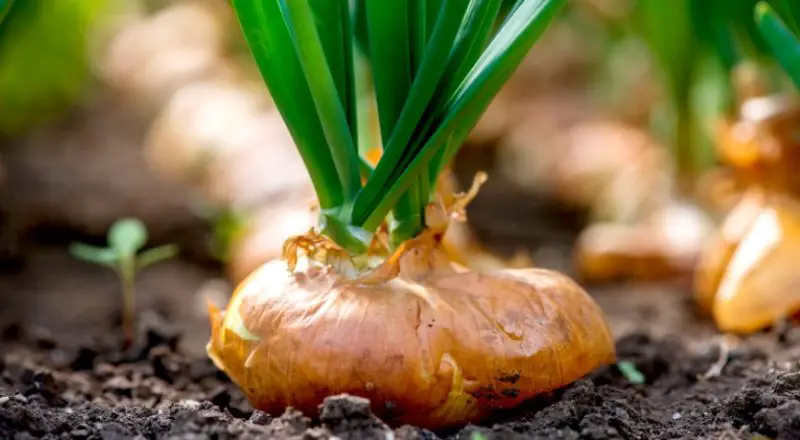
Garlic (Allium sativum) and Onion (Allium cepa) are both powerful natural snake repellents due to their strong, pungent odor. These plants are easy to grow and thrive in full sunlight with moist, well-drained soil. Garlic and onion require minimal care, needing only regular watering and occasional maintenance.
The strong smell of garlic and onion is unpleasant to snakes, making them effective at keeping reptiles away. Planting these vegetables in your garden not only helps deter snakes but also provides fresh, homegrown produce for cooking.
Mugwort
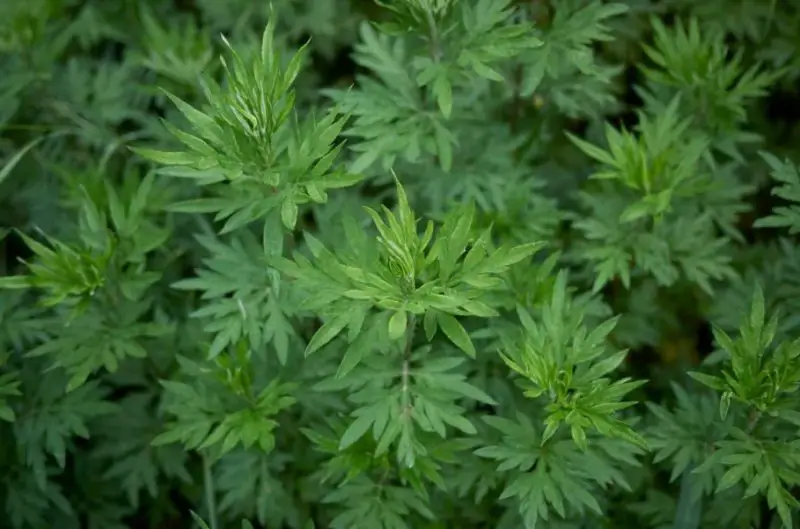
Mugwort (Artemisia vulgaris) is a tall plant with woody roots that snakes tend to avoid due to its distinct appearance and strong aroma. It thrives in well-drained soil and full sunlight, and grows quickly, making it an effective natural barrier against snakes. While it requires some maintenance, it is a hardy plant that can easily adapt to different garden environments.
The unique scent of Mugwort is unpleasant to snakes, which helps keep them away from your garden. With its fast growth and snake-repelling properties, Mugwort is a great addition to any yard looking to deter unwanted reptiles.
Society Garlic
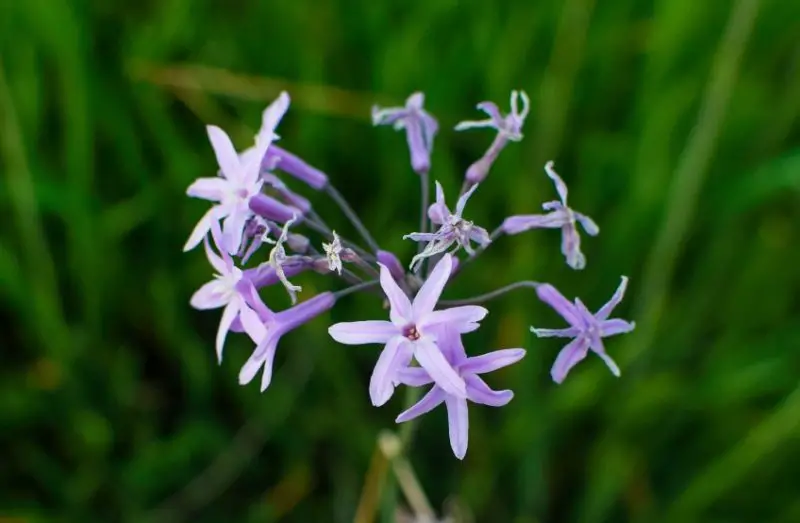
Society Garlic (Tulbaghia violacea) is a robust plant known for its strong garlic-like scent, which effectively repels snakes. It thrives in hot and dry conditions, making it ideal for summer gardens. Society Garlic grows well in well-drained soil with full sunlight and is drought-tolerant, requiring minimal care once established.
The pungent aroma of Society Garlic is what keeps snakes at bay, creating a natural barrier in your garden. With its attractive flowers and snake-repellent properties, it’s a beautiful and practical addition to any garden looking to stay snake-free.
Indian Snake Root
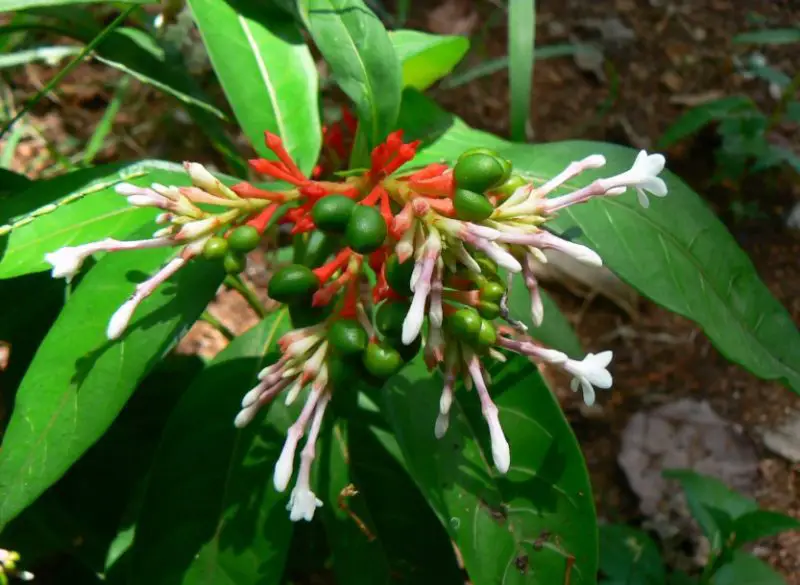
Indian Snake Root (Rauvolfia serpentina), also known as Sarpgandha, is a plant native to South Asia, known for its strong scent that repels snakes. It grows well in well-drained soil and partial to full sunlight, requiring minimal care. This plant is also valued for its medicinal properties, being used in traditional remedies for various health conditions.
The distinctive odor of Indian Snake Root makes it an effective natural snake repellent, keeping snakes away from your garden. Its snake-deterring scent and low maintenance make it a great addition to any yard.
King of Bitters
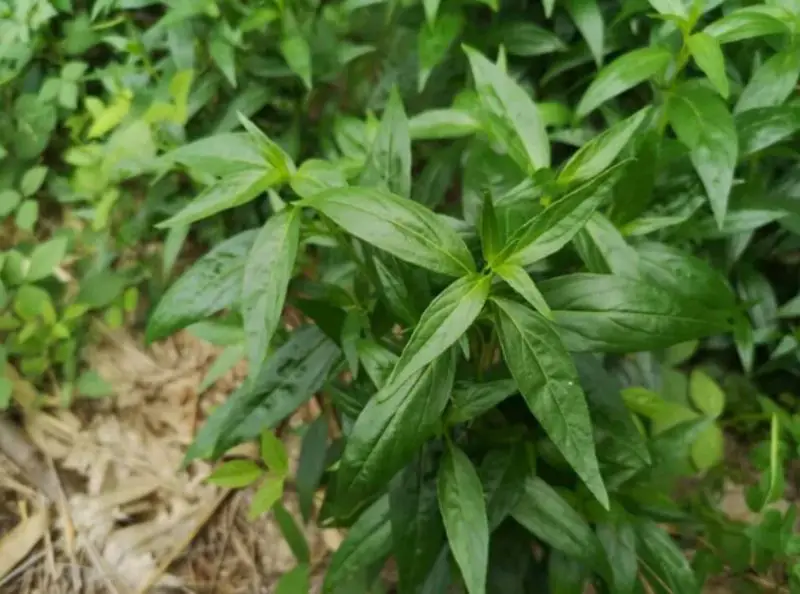
King of Bitters (Andrographis paniculata) is a bitter herb known for its strong aroma, which effectively repels snakes. It thrives in well-drained soil and full sunlight, growing best in warm climates. This plant is low-maintenance and also offers medicinal benefits, particularly for improving digestion and boosting the immune system.
The bitter scent and taste of King of Bitters deter snakes from entering your garden. Its natural snake-repelling properties, along with its health benefits, make it a valuable addition to any garden looking to keep snakes away.
Tobacco
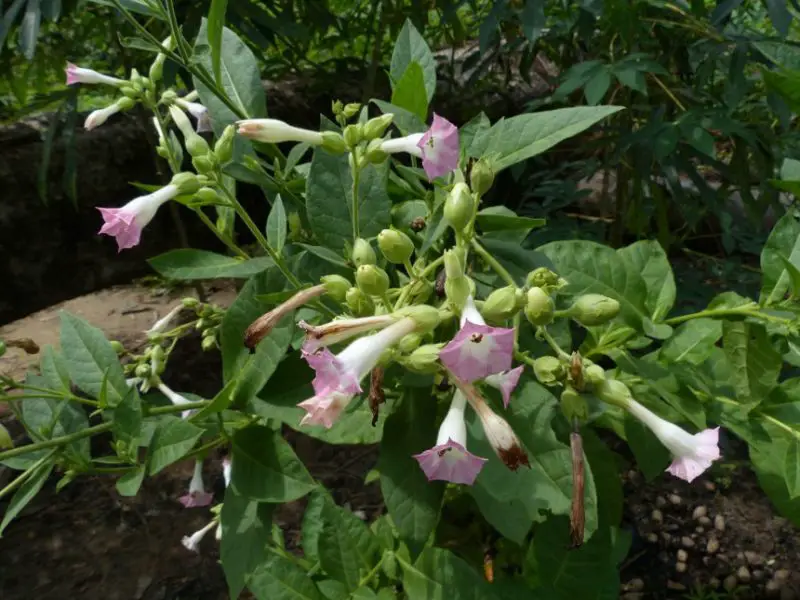
Tobacco (Nicotiana) is a plant known for its strong, unpleasant odor that effectively repels snakes. It thrives in full sunlight and well-drained soil, requiring minimal maintenance once established. While it is commonly used in the tobacco industry, its ability to deter snakes makes it a practical addition to your garden.
The pungent smell of Tobacco is a natural deterrent to snakes, helping to keep them away from your yard. Although not as potent as some other plants, it works well when paired with other snake-repellent plants, offering a natural barrier against unwanted reptiles.
Clove Basil
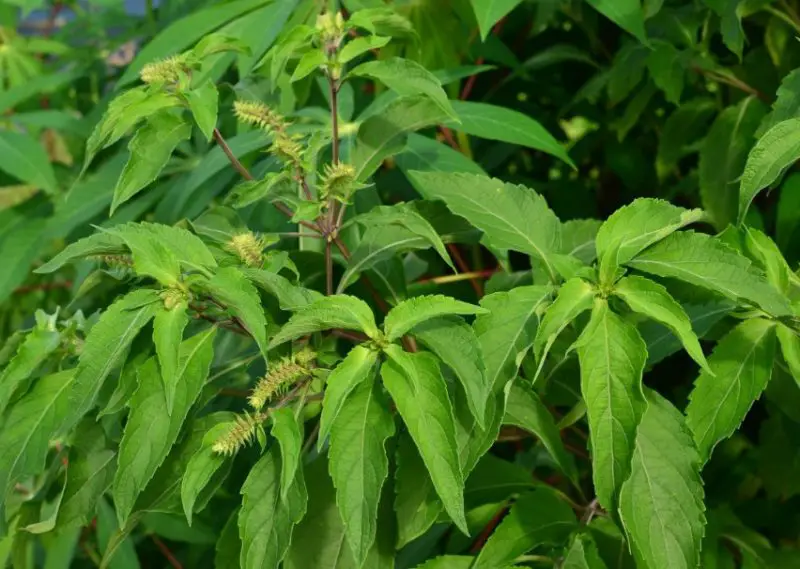
Clove Basil (Ocimum gratissimum), also known as the scent leaf, is a fragrant herb that effectively repels snakes with its strong, clove-like aroma. It thrives in well-drained soil and full sunlight, requiring moderate care and regular watering to maintain healthy growth.
The potent scent of Clove Basil confuses and deters snakes, making it an excellent natural snake repellent. Along with its snake-repelling qualities, this plant adds beauty to your garden with its aromatic leaves and attractive appearance.
Kaffir Limes
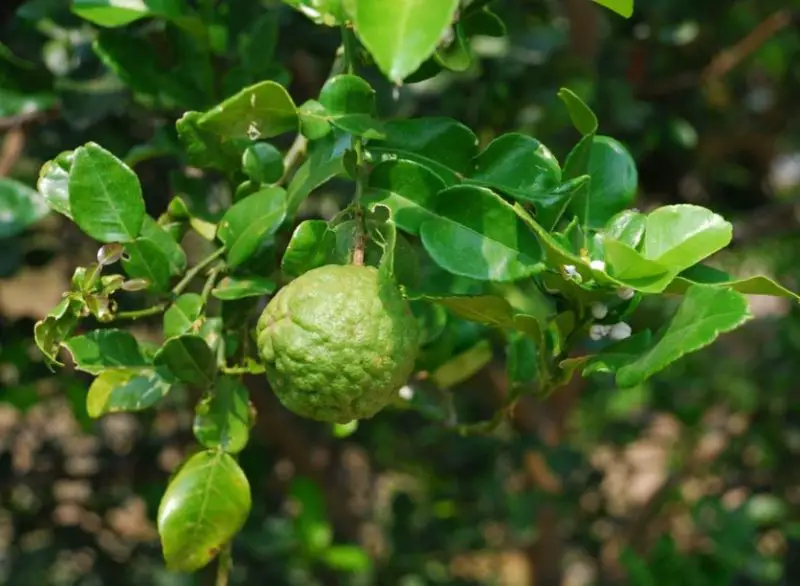
Kaffir Limes (Citrus hystrix) are fragrant citrus plants known for their strong scent, which snakes find unpleasant and avoid. These plants thrive in well-drained, moist soil and require full sunlight to grow. Kaffir Limes are low-maintenance once established, needing only regular watering during dry periods.
The strong aroma of Kaffir Limes acts as a natural deterrent to snakes, keeping them away from your garden. Along with its snake-repelling properties, the plant also adds a unique citrus fragrance and vibrant greenery to your yard.
Jimsonweed
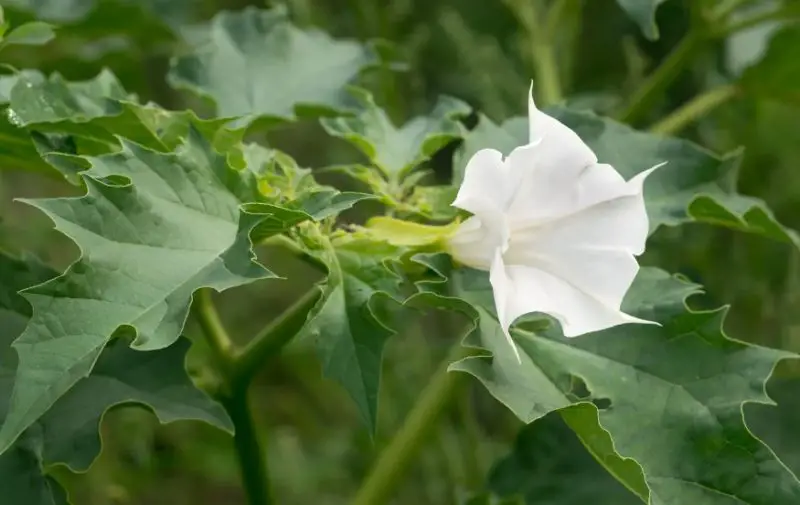
Jimsonweed (Datura stramonium), also known as thorn apple, is a plant with a strong, foul odor that effectively repels snakes. It grows well in full sunlight and prefers well-drained soil, thriving in various conditions. Though it requires minimal care, it can become invasive, so it’s important to manage its growth.
The unpleasant smell and toxic properties of Jimsonweed act as a natural barrier, keeping snakes away from your garden. While it also adds a unique, striking appearance to your yard, its primary benefit is its ability to deter reptiles from entering your space.
Cactus
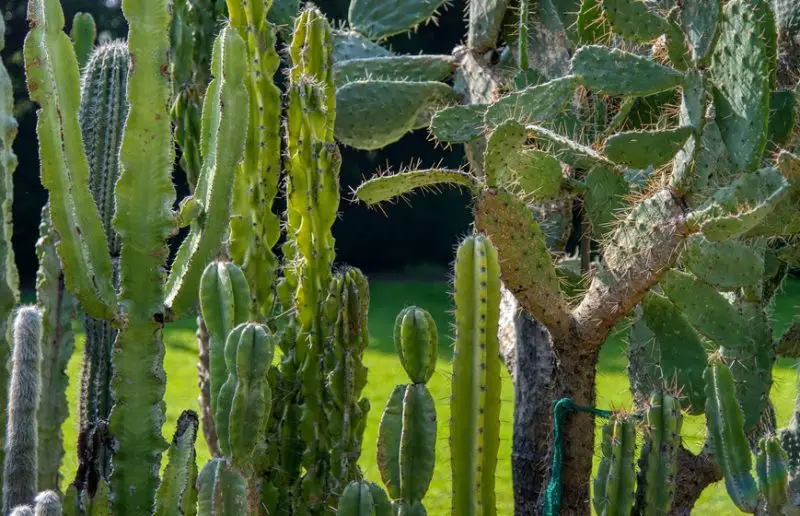
Cacti (Cactaceae) are spiny, hardy plants that naturally deter snakes due to their sharp thorns. They thrive in well-drained soil and require full sunlight, making them ideal for dry, arid climates. Cacti are low-maintenance, needing only occasional watering and minimal care once established.
The spiky nature of cacti creates a physical barrier that snakes avoid, helping to protect your garden. In addition to their snake-repelling properties, cacti add a unique and striking aesthetic to any garden, making them a great choice for both beauty and defense.
Wormwood
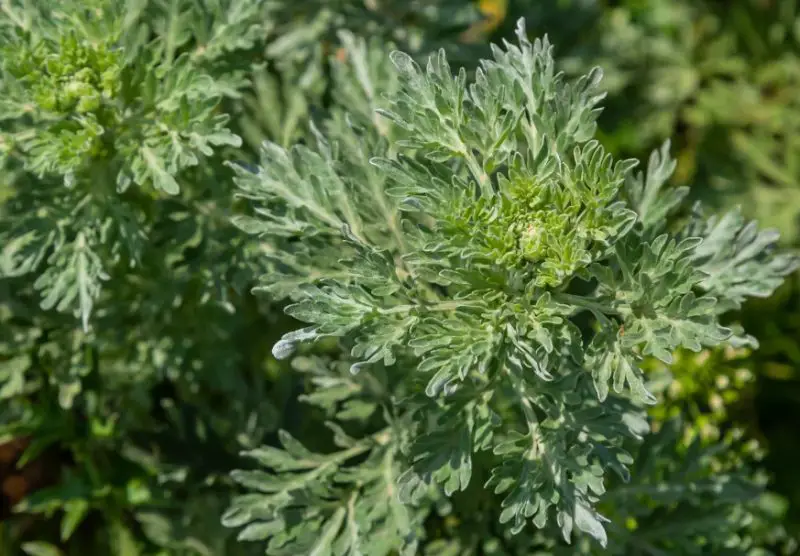
Wormwood (Artemisia absinthium) is a hardy plant known for its strong, musky odor that effectively repels snakes. It thrives in well-drained soil and full sunlight, requiring minimal care once established. Wormwood is also drought-tolerant, making it an excellent choice for dry, sunny gardens.
The strong scent of Wormwood is unpleasant to snakes, helping to keep them away from your garden. Along with its snake-repelling qualities, this plant also adds a unique aroma and silvery-green foliage to enhance your garden’s beauty.
Skunk Cabbage
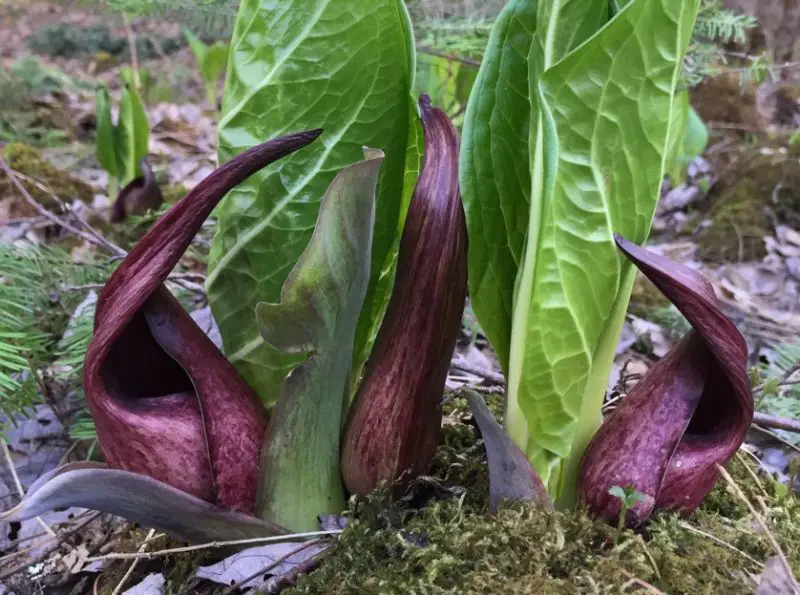
Skunk Cabbage (Symplocarpus foetidus) is a plant known for its strong, foul odor, which effectively repels snakes. It thrives in wet, boggy soil and prefers shaded or partially shaded areas. Skunk Cabbage is low-maintenance, needing only regular moisture to grow.
The unpleasant smell of Skunk Cabbage acts as a natural deterrent, keeping snakes away from your garden. In addition to its snake-repelling properties, it adds an interesting, unique appearance to your yard with its large, glossy leaves and distinctive flowers.
Additional Tips for Keeping Snakes Out of Your Yard
In addition to planting snake repellent plants, there are other natural methods to further discourage snakes from entering your yard. For example, consider using essential oils like peppermint or cinnamon, which snakes find unpleasant. Sprinkling a mixture of these oils around your yard can enhance the effectiveness of your snake repellent plants.
Maintaining a clean yard is also crucial for preventing snakes from finding shelter. Keep the grass trimmed and remove piles of rocks, wood, or debris where snakes can hide. Additionally, sealing gaps around fences, gates, and foundations can prevent snakes from slithering into your yard. Avoid leaving pet food or birdseed outside, as these can attract rodents, which in turn, attract snakes. By combining these methods with the strategic use of snake repellent plants, you can create a snake-free environment and enjoy your outdoor space without worry.


